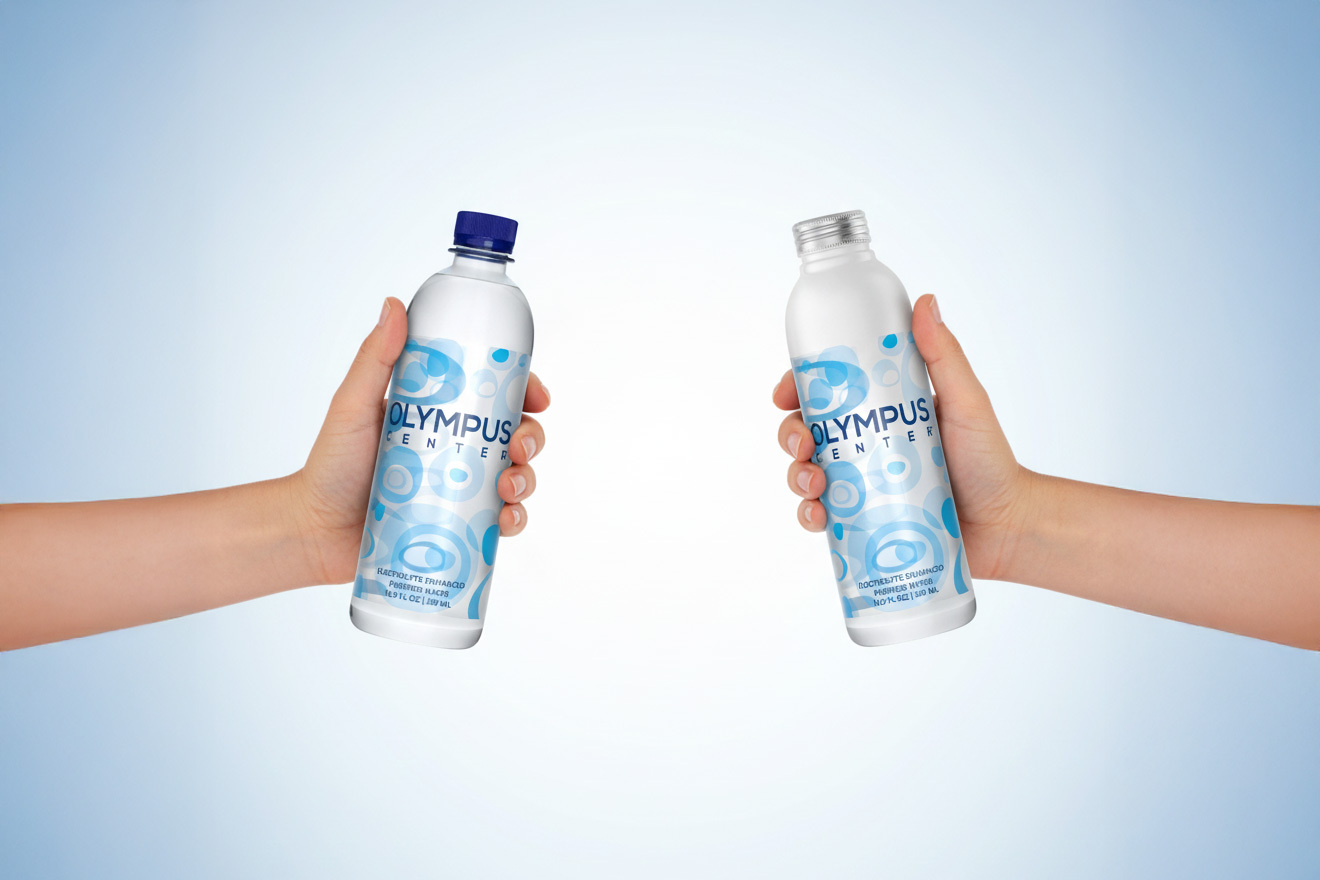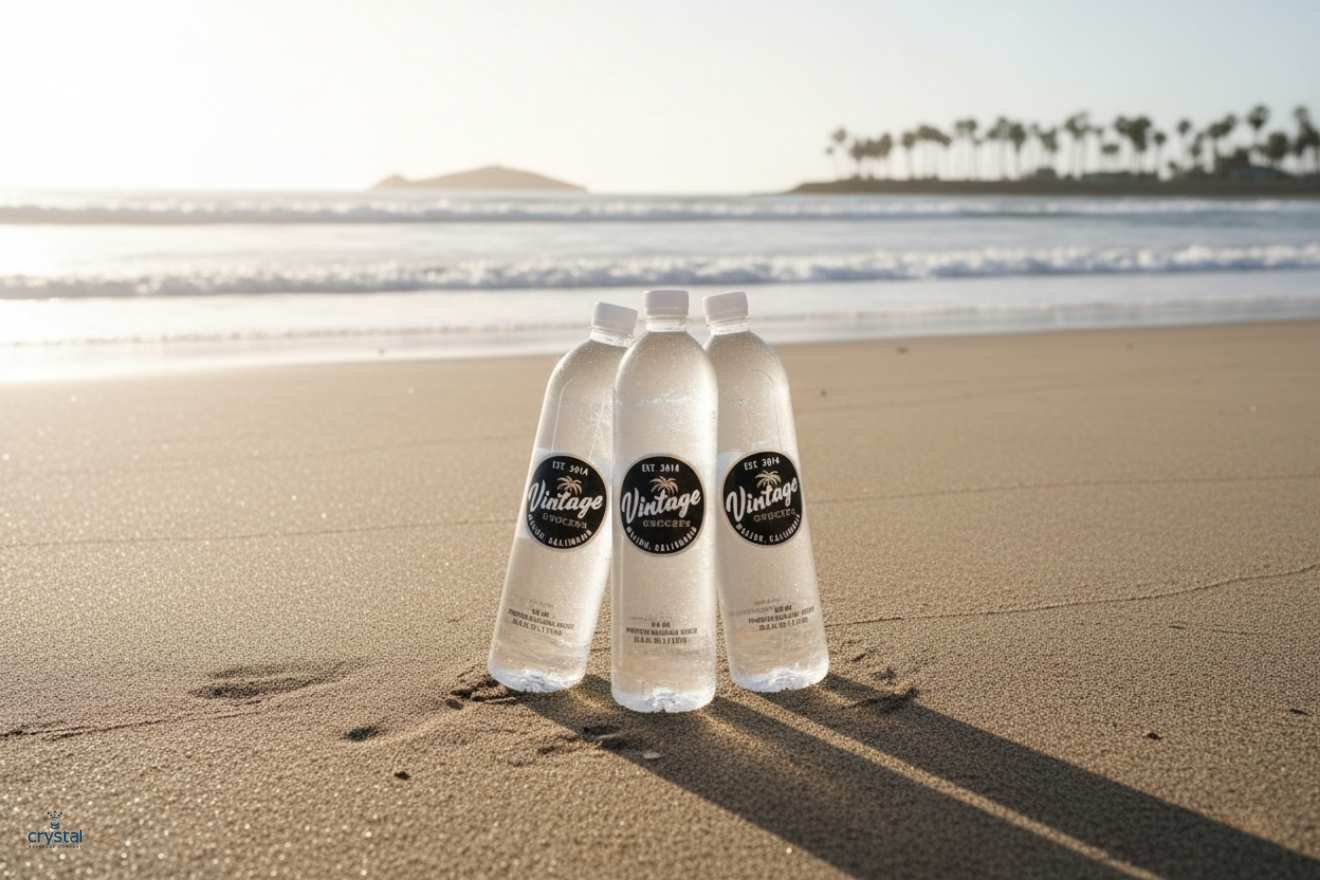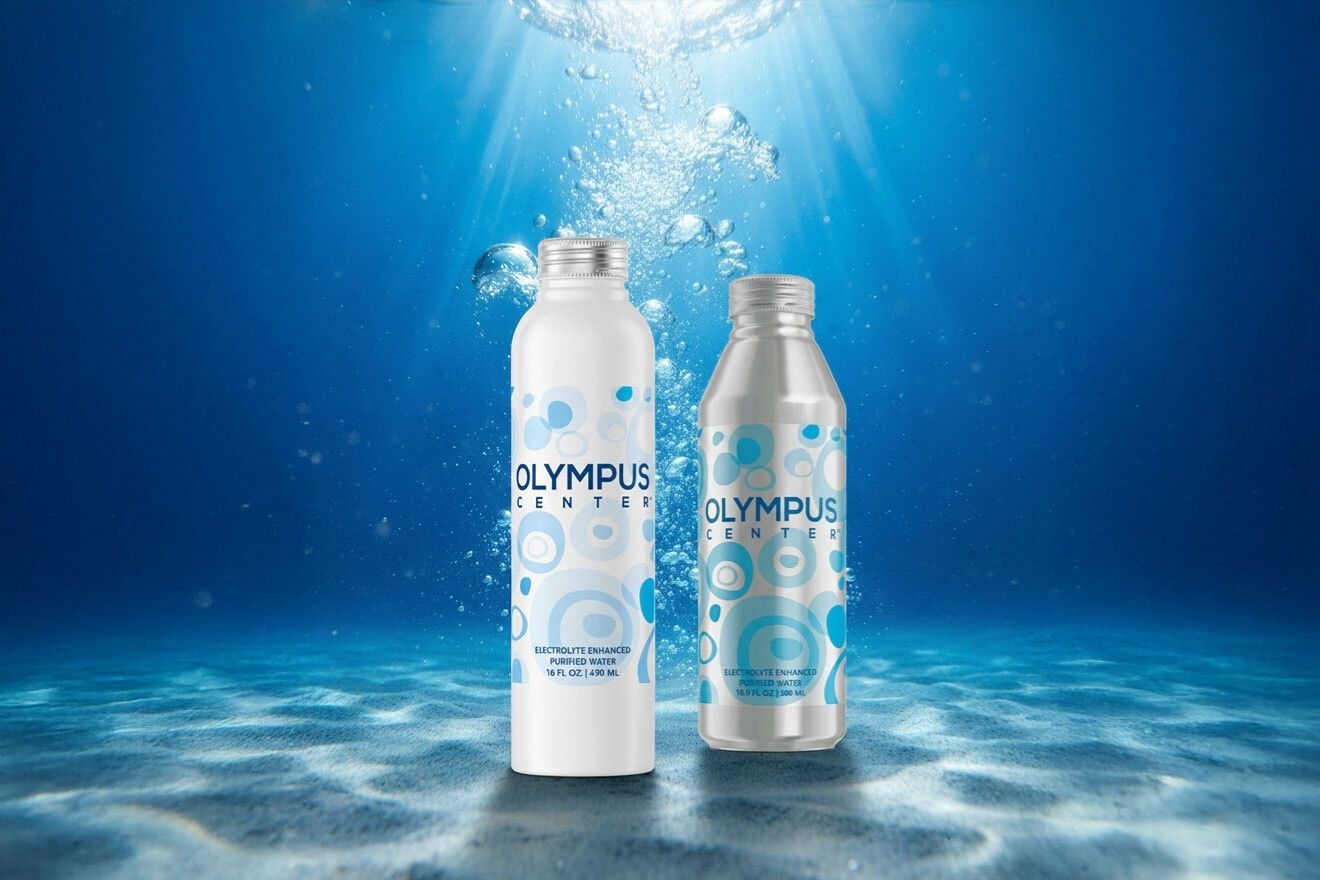10 Signs Of Dehydration And How To Hydrate Quickly


While being dehydrated certainly doesn't feel like a life or death situation, staying dehydrated can lead to severe consequences. Not to mention, most people don't realize just how quick and easy it is to fall into dehydration. After all, it can be difficult to consume the recommended 8 glasses of water a day. Or, you could be in an area that doesn't have drinking water readily available, such as on a mountain hike.
Regardless, whether you're in the middle of the forest or just enjoying a sunny day out in the city, sipping on water throughout the day is vital for your health. Once you recognize the symptoms of dehydration, it's extremely important to rehydrate as quickly as you can. You'll also want to rehydrate after activities or situations that cause significant water loss, such as intense exercise, or after a bout of stomach flu or a night out drinking.
Knowing how to rehydrate is important to stave off the harmful effects of dehydration on your body. Severe dehydration can mess with your bodily processes, making it difficult for your body to regulate its temperature, digest properly, or allow you quality sleep. By keeping the fluids flowing through your body, you can prevent the unpleasant side effects of dehydration, such as disorientation, exhaustion, and nausea.
These are only some of the side effects that dehydration causes. The longer you stay dehydrated, the worse it becomes. To help you stop dehydration in its tracks, look out for these 10 signs that you're suffering from dehydration:
10 SIGNS OF DEHYDRATION
1. BAD BREATH
No one wants to be told that their breath stinks. Want to avoid that potentially embarrassing situation? Drink up! When you're dehydrated, your production of saliva slows down. With less saliva in your mouth, you can get bacterial overgrowth, which eventually leads to bad breath. This is especially true for people who are chronically dehydrated. So if ever anyone tells you that your breath has been smelling a bit funky lately, it might be a sign that you're not drinking enough water.
2. CONSTIPATION
When we drink water, it helps with our digestion of the food we're eating. Water is also really important for moving the food across your bowels. If you're dehydrated, things may get stopped up and you might have a hard time going to the bathroom—this is your body telling you to drink more water! Especially if the condition is persistent, rehydrating may provide the most immediate relief.
3. DRY MOUTH
Another side effect of not drinking enough water is the uncomfortable feeling of having a dry mouth. Since your production of saliva has slowed down, the inside of your mouth has less fluid to keep it hydrated. If your mouth is feeling dry and is leading to a soreness in your jaw, you're probably dehydrated.
4. TIREDNESS
Water is vital for your body, as it needs fluids to efficiently perform its daily functions. Just like a machine, when you don't provide your body with enough water, it doesn't function as well as it should and eventually slows down. Your body will then attempt to preserve energy by making you more tired. If you find yourself tired for no reason, even if you've had a full 8 hours of sleep, then it might just be because you're dehydrated. Drink a glass of water or two and you'll find yourself re-energized soon enough.
5. SWEET CRAVING
When there's not enough water in your body, your body starts losing energy. To try to make up for the loss, your body will start dipping into your glycogen stores. Glycogen is the broken down carbohydrates stored in your body that act as a "backup" source of energy when you're not feeding yourself properly with food and water.
Eventually, even those stores will be diminished, and your body will start sending signals to your brain that will trigger some intense sweet cravings. Why sweets? Sweets are a quick and efficient way to get more carbs and more energy into your body. But instead of reaching for that candy bar, reach for a glass of water. Don't treat the symptoms—attack the problem from its source!
6. DIZZINESS
Low blood pressure and the accompanying side effects is one of the sure signs of dehydration. Less fluid volume in your bloodstream can cause your blood pressure to plummet, resulting in dizziness or vertigo. In fact, even mild dehydration can lead to dizziness and nausea, so make sure to always have water on hand wherever you go.
7. DRY SKIN
There's a reason why skincare enthusiasts hail water as the key to all their skin woes. When your skin doesn't get enough water, it gets pretty dry. Why? When your body isn't hydrated well enough, your blood volume decreases. Your blood volume is a major factor in the hydration of your skin cells. If your body feels particularly dry, then that means it's time to rehydrate.
8. FEELING COLD
Your blood flowing through your body creates heat and warmth, allowing you to feel nice and toasty in fresh weather. However, since dehydration affects blood volume, the low blood volume can leave you feeling cold and chilly—even on a sunny day! If everyone around you is talking about the heat but you can only focus on pulling your jacket closer to you, then perhaps it's time to acknowledge that you're not drinking enough water.
9. HEADACHE
Did you know your brain essentially sits in a sac of fluid in your head? This is so that your brain doesn't bump against the side of your skull and cause all sorts of bodily problems. When you don't drink enough water, the protective layer of fluid gets thinner, which often leads to headaches and migraines. Chronic headaches may be a sign that you're dehydrated.
10. IRRITABILITY
Studies show that neurological effects of dehydration can cause irritability in people. With all the slew of side effects listed above, who wouldn't be irritated from feeling so badly? Not only is drinking a glass of water soothing and calming in the moment, but it could help keep your mood from consistently going sour on a day-to-day basis.
WHAT IS THE QUICKEST WAY TO REHYDRATE YOUR BODY?
1. WATER
If you have to ask how to rehydrate, then the answer is a definite no-brainer: drink water. It's not surprising that water is the most efficient way to hydrate. It's cheap and contains no added sugars, no calories, and can be served hot or cold depending on your preference. The other great thing about water is that you can drink it anytime, anywhere, no matter what the situation. Water can be drunk any time of day, or after a workout, or when you're not even thirsty! Truly, water is the beverage that tops all other beverages.
2. COFFEE & TEA
Tea acts as a diuretic, and coffee contains stimulant caffeine, both of which can be dehydrating in excessive amounts. However, moderate amounts of coffee and tea can actually be quite hydrating! Tea and coffee, after all, are just leaves or beans steeped in hot water. Most of both these beverages are still comprised mostly of water.
Caffeine becomes bad for you only when you drink about two or three 8-ounce cups of coffee, or five to eight 8-ounce cups of tea. As long as you're drinking moderate amounts of either, these should count into your daily hydration quota. It's also important to remember that if you're the type to add a lot of creamer, milk, and sugar to your hot beverages, consuming these drinks can add up a ton of liquid calories. If you can't stand these beverages plain, try using healthier sweetener options such as almond milk, stevia, or honey.
3. SKIM & LOW FAT MILK
We bet you didn't know how to rehydrate yourself with milk before! Not just a great source of calcium, milk is also an excellent hydrator. How? Much like a sports drink, milk contains high doses of electrolytes, and these electrolytes aid in balancing the amount of water in your body.
Some gym buffs swear that a glass of low-fat chocolate milk is amazing for recovering after a tough workout, as the electrolytes in milk rehydrate the body while the chocolate flavoring provides a burst of energy via sugars. The protein in milk is also ideal for muscle repair and rebuilding, and comes with the added bonus of providing you calcium and other important nutrients.
The only downside to rehydrating with milk is that it may cause stomach bloating, or may trigger an allergic reaction for those who aren't fond of dairy products. Full fat milk is also high in calories, and can worsen stomach conditions like diarrhea. However, as long as you aren't stick or lactose intolerant, milk should serve as an excellent option for rehydration.
4. FRUITS AND VEGETABLES
Fruits and vegetables such as berries, melons, oranges, grapes, lettuce, cucumber, cabbage, and spinach have an incredibly high water content, consisting of 80-90% water. Compared to highly processed foods like cereals and cookies that have only 1-9% of water in them, fruits and vegetables should be the first to pop into your mind when you think of how to rehydrate yourself.
This is especially handy to remember if you're in an area with not a lot of drinking water available. If you can find fruits, or large green leafy vegetables, these will most likely be high in water content and will keep you hydrated for longer.
Tip: You can also mix fruits and vegetables with water to add more flavor; read more here on how to do it.
5. ORAL HYDRATION SOLUTIONS
Specialized formulas used to prevent and treat dehydration are called oral hydration solutions. These are usually prescribed when someone suffers from conditions such as diarrhea or severe vomiting, which causes a significant amount of fluid loss. These water-based solutions usually have electrolytes in them, as well as a bit of sugar, sodium, potassium, and other ingredients that help recover the body after water loss.
These rehydration beverages are usually prescribed by a doctor and can be expensive, hence are only prescribed when one is at risk for extreme dehydration. When thinking of how to rehydrate, always go for water as your first choice, as that will prevent you from reaching a state of dehydration that requires solutions as drastic as an oral hydration solution.
HOW LONG DOES IT TAKE TO REHYDRATE AFTER DEHYDRATION?
Drinking at least 20.3oz or 600ml of water has been found to quell the effects of mild dehydration in just 45 minutes. This is how much water it takes to recover from this dehydration type that commonly affects a lot of people.
For severe cases of dehydration, you can expect the body to take up to 24 hours to fully recuperate and regain the lost fluids. This is also done with the help of intravenous hydration, a process by which sterile water solutions are injected into the body to speeden up the rehydration process.






